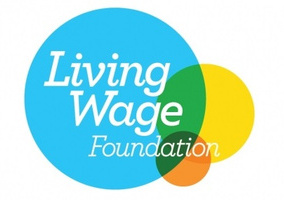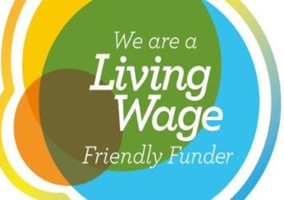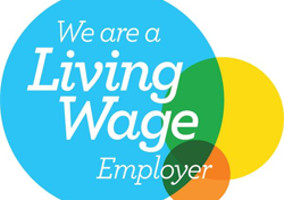Just over a quarter of people working for charities are paid below the real living wage - higher than the UK average of 21 per cent - according to research published by the Living Wage Foundation today.
As part of Living Wage Week, the campaign has today published a report called Low Pay in the Charity Sector, which found that some 26 per cent of charity workers earn below the real living wage, the amount that the Living Wage Foundation says people actually need to meet their costs.
Yesterday the real living wage rate was increased. It is now £8.75 per hour, an increase of 30p per hour. In London it is £10.20 per hour, an increase of 45p per hour. It is calculated annually by the Resolution Foundation and overseen by the Living Wage Commission.
It is higher than the national minimum wage, which applies to under 25s, and the the national living wage, which applies for workers over 25.
The report was compiled using data gathered by NCVO and is taken from the Labour Force Survey conducted by the ONS, where survey respondents self-identify as working or a “charity, voluntary organisation or trust’. It based on a sample size of approximately 40,000 responding UK households.
Residential care most affected
Some 45 per cent of charity workers in residential care reported being paid at below the real living wage rate.
Education was the second worst paid sector, with 30 per cent paid below the rate. Human health was the subsector with the lowest percentage of people earning below the real living wage, with 14 per cent.
Women in the sector are also more likely to earn less. Some 30 per cent of women workers earn below the real living wage, compared to 21 per cent of men. Nearly three quarters of low-paid charity workers are women, the report found.
People from BAME backgrounds and younger workers were also more likely to be affected by low pay, according to the report.
The majority of low-paid employees worked for smaller charities. Just over three quarters of people earning below the real living wage work for a charity with fewer than 50 employees.
Charities need to do better
There are currently over 800 charities accredited with the Living Wage Foundation and 31 foundations signed up to the friendly funder scheme, which means that if they give a grant to fund a project, all staff working on that project should be able to be paid the living wage.
But the Living Wage Foundation, the People’s Health Trust and NCVO have now urged the sector and funders to do more.
Katherine Chapman, director of the Living Wage Foundation, said: “This report shows that low pay remains a real challenge across the charity sector, with stark revelations as to demographics of those most likely to be worst affected.
“A collaborative approach from thousands of charities and funders is needed, to ensure that those working for charities can earn a wage that meets the cost of living.”
John Hume, chief executive of the People’s Health Trust, which was involved in setting up the friendly funder scheme, said: “To even contemplate ending low pay in the charity sector, not only do we need charities to work towards paying their staff a real living wage, but we need funders and commissioners to commit to paying the real living wage through grants and contracts they award to charities. It is not always an easy conversation to have.
“With an increasingly uncertain economic climate, we know many are operating with ever-tighter budgets, but we still need to act. We need to work together, and do right by our workers, ensuring all charities reliant on their grants are able to pay the real living wage.”
Sir Stuart Etherington, chief executive of NCVO said: “There is a clear moral, economic and business case for increasing the wages of the lowest paid.
“Today’s report reminds us that investing in people not only improves their own wellbeing but can also improve organisations’ ability to attract, motivate and retain great staff. I know times are tough for many charities, but we are making good progress, with over eight hundred accredited living wage employers in our sector.
“Wherever possible, I would encourage charities to consider becoming living wage employers. One of the drivers of low pay in the voluntary sector is the terms and fees for public service contracts. NCVO has called for contracts that enable providers to pay their staff the living wage.”
Related articles












